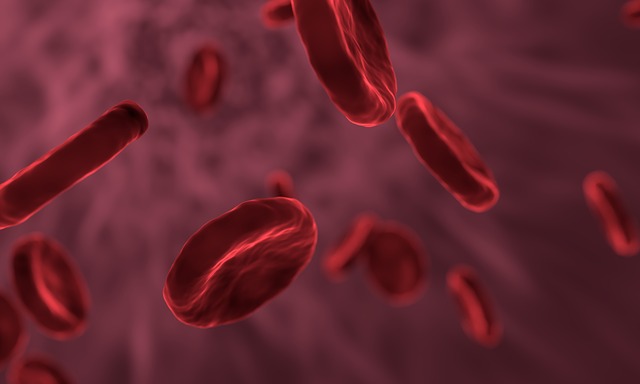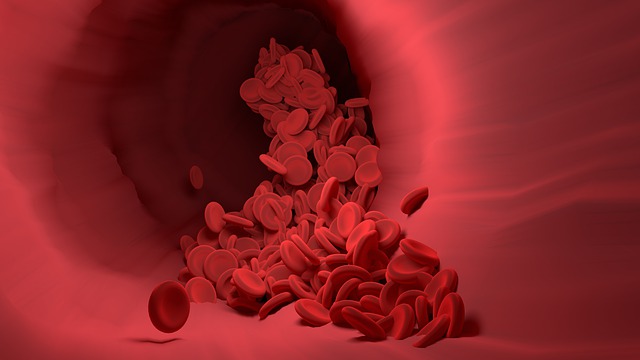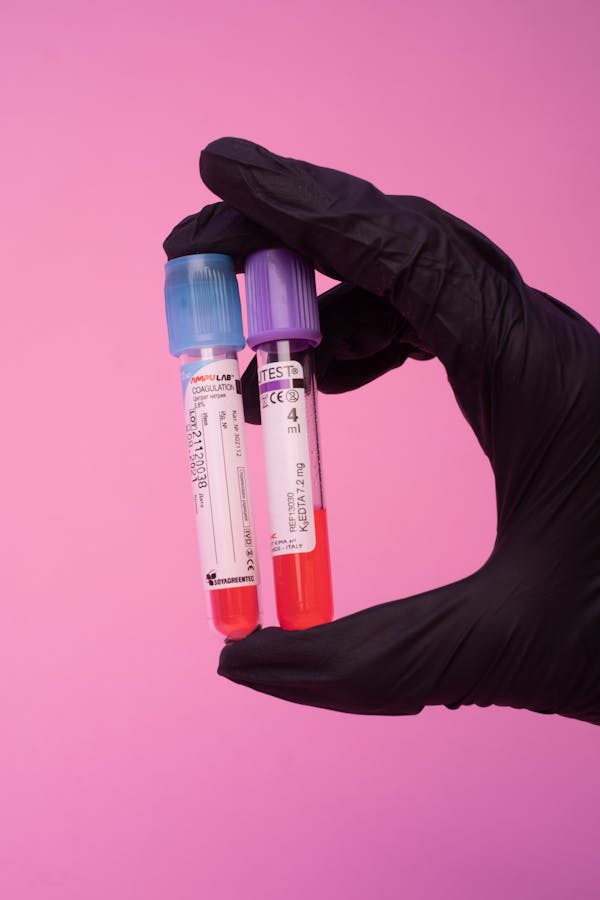
The quantity of blood in a person’s body is determined by their age and stature. Losing a certain quantity of blood will not have any adverse effects on the body.
The proportion of blood in the human body is about 7% of one’s weight. Because it can be influenced by how much you weigh, your sex, and even where you reside, the average amount of blood in your body is a guess.
How much blood is in the human body?
The average adult human has between 4 and 5 liters of blood, which equates to approximately 8 to 10 fingertip units (FUs).
This is because men have more blood than women and people who live at higher altitudes have more blood than those who live at lower altitudes.
One FU is the amount of blood that would fill a small tube on a fingertip and is about 0.5 mL. This means that the average adult human has between 2 and 3 mL of blood per fingertip.
Given that there are approximately 10 pints in a liter, this means that the average adult human has between 40 and 50 pints of blood in their body.
Considering that there are only 12 FUs in a pint, this means that the average adult human has between 480 and 600 FUs of blood in their body.
Read also: What Happens When Your Immune System Fails
How does someone’s age affect the amount of blood in their body?
The average human body contains between 4 to 5 liters of blood, which is about 8% of the body’s total weight.
The majority of this blood is contained within the veins and arteries, with a small percentage found in other tissues and cavities.
The amount of blood in a person’s body will vary depending on their age. For example, newborn babies have a higher percentage of blood volume compared to their body weight than adults do.
This is because they have a greater amount of water in their bodies, which makes up a larger proportion of their total weight.
As people age, they lose muscle mass and water content from their bodies, which causes them to have less blood.
Therefore, the percentage of blood volume compared to body weight decreases with age. However, the absolute amount of blood in the body remains relatively stable over time.
This is because the drop in muscle mass and water content is offset by an increase in the number of red blood cells, which helps to maintain the overall volume of blood.
Read also: What Happens When You Have Pneumonia
How much blood can a person lose?
Losing a small amount of blood will not have any adverse effects on the body.
In fact, it is estimated that the average person can lose up to 15% of their total blood volume without experiencing any serious health problems.
However, losing more than this can be dangerous and may lead to shock, organ failure, or even death. For example, losing 40% of your blood volume can be fatal.
Therefore, it is important to seek medical attention if you lose a large amount of blood. How quickly someone loses blood will also affect how serious the consequences are.
For example, if someone loses a large amount of blood over a short period of time, they are more likely to go into shock and may die.
However, if someone loses a small amount of blood over a long period of time, they are more likely to experience anemia and may require a blood transfusion.
Read also: What Would Happen if Oxygen Were to Disappear
How does blood volume change with age?
The quantity of blood in the human body varies depending on a person’s age.
Newborn babies have a higher percentage of blood volume compared to their body weight than adults do. This is because they have a greater amount of water in their bodies, which makes up a larger proportion of their total weight.
As people age, they lose muscle mass and water content from their bodies, which causes them to have less blood. Therefore, the percentage of blood volume compared to body weight decreases with age.
However, the absolute amount of blood in the body remains relatively stable over time.
This is because the drop in muscle mass and water content is offset by an increase in the number of red blood cells, which helps to maintain the overall volume of blood.
Read also: What Happens When Your Oxygen Level Drops Too Low

How much blood does your body make a day?
The average person produces approximately 2.4 million red blood cells per day.
This means that the body must replace its entire supply of red blood cells every 24 to 48 hours. In order to do this, the bone marrow must produce new blood cells at a rate of about 2 million per second.
The production of new blood cells is known as erythropoiesis.
There are three main types of blood cells: red blood cells, white blood cells, and platelets.
Red blood cells make up the largest proportion of blood cells and are responsible for carrying oxygen to the body’s tissues. White blood cells help to fight infection and disease, while platelets are involved in clotting.
Blood cell production is tightly regulated by the body in order to maintain a healthy balance. However, conditions such as anemia can disrupt this process and lead to problems.
Anemia is a condition in which there is a decrease in the number of red blood cells or hemoglobin, which is the protein that carries oxygen in the blood.
Anemia can be caused by a number of factors, including iron deficiency, certain chronic diseases, and cancer.
Treatment for anemia typically involves taking iron supplements or getting injections of erythropoietin, a hormone that stimulates red blood cell production.
Read also: What are the consequences of having a high eosinophil count
How does altitude affect blood volume?
The quantity of blood in the human body varies depending on a person’s altitude. At high altitudes, there is less oxygen in the air, which causes the body to produce more red blood cells in order to carry oxygen to the tissues.
This results in an increased blood volume. However, at low altitudes, the body does not need to produce as many red blood cells and the blood volume decreases.
The body typically adjusts to changes in altitude within a few days. However, if someone ascends too quickly, they may experience a condition called altitude sickness.
This is caused by a lack of oxygen and can lead to symptoms such as headache, nausea, and fatigue. Altitude sickness can be prevented by ascending slowly and drinking plenty of fluids.
Treatment typically involves descending to a lower altitude and using oxygen therapy.
Read also: What Happens When Your Body Overheats
How does blood volume change during pregnancy?
During pregnancy, the volume of blood in the body increases by approximately 40-50%. This is necessary in order to provide oxygen and nutrients to the developing fetus.
The increased blood volume is caused by an increase in the number of red blood cells, as well as an increase in plasma volume.
Plasma is the liquid component of blood that contains nutrients, hormones, and proteins. The increased blood volume typically begins to decline in the third trimester and returns to normal within 6 weeks after delivery.
Read also: What Happens if You Have Too Much Protein

How to maintain healthy blood volume
Maintaining healthy blood volume ensures proper delivery of oxygen and nutrients to your organs and tissues, while also removing waste products.
Here are some key tips to help you achieve and maintain healthy blood volume:
Stay hydrated
Drinking sufficient fluids is essential for blood volume.
Aim for 8-10 glasses of water per day or more if you are active or in hot climates.
Pale yellow urine indicates proper hydration.
Increasing consumption of water-rich fruits and vegetables boosts fluid levels as well.
Maintain a balanced diet
Consume a balanced diet plentiful in electrolyte-containing foods like bananas, spinach, beans, nuts and seeds.
Electrolytes such as sodium and potassium help regulate hydration status.
Additionally, eat plenty of whole grains, lean proteins, fruits, and vegetables to obtain essential vitamins and minerals that facilitate blood cell generation.
Manage stress
Chronic stress triggers hormone fluctuations which can potentially impact blood pressure and volume.
Build in daily relaxation practices such as yoga, meditation, deep breathing, or spending peaceful time in nature.
Prioritizing adequate sleep allows the body to fully recuperate and supports healthy blood volume regulation.
Be mindful of certain medications
Certain drugs like diuretics and medications for high blood pressure can increase urination and fluid loss from the blood.
Discuss potential side effects and alternatives with your doctor if concerned about medications decreasing your blood volume.
Monitor blood pressure
Regular blood pressure screening can identify issues related to blood volume or undiagnosed conditions needing treatment.
Consult your physician for advice on the appropriate frequency for personal monitoring, target ranges, and management solutions.
Summary
The human body contains a great deal of blood, which serves the vital function of transporting oxygen and nutrients to the tissues.
The volume of blood in the body varies depending on a person’s altitude; someone who lives at a high altitude will have a greater volume of blood than someone who lives at a lower altitude.
Additionally, the volume of blood in the body can increase or decrease during pregnancy. Altitude sickness can occur if someone ascends too quickly and fails to acclimatize to the change in altitude.
When this happens, the individual may experience headaches, nausea, and vomiting. If left untreated, altitude sickness can be fatal.
However, by ascending gradually and taking time to acclimatize, people can prevent this condition.



